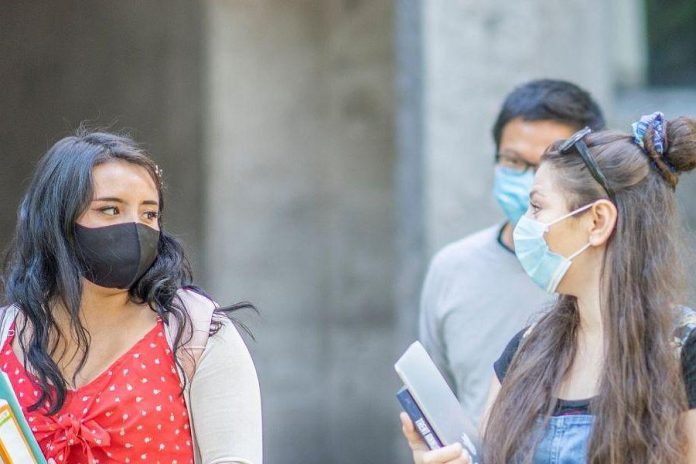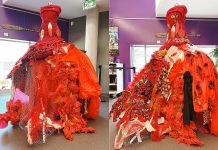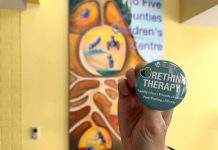
An online petition calling on Trent University to pull back from its plan to return to in-person learning exclusively on January 31 is gaining traction in a hurry.
The petition, titled “Keep Winter Semester Online At Trent University” and posted at change.org/p/keep-winter-semester-online-at-trent-university/, had garnered over 2,300 signatures as of late Thursday morning (January 27).
Trent students were informed January 24 that they will be required to return to class on Monday (January 31), at which point seminars and lectures will not be recorded or posted online. The original date for that to occur was January 17 but, due to the uncertainty caused by the ongoing fourth wave of the pandemic with its highly transmissible omicron variant, Trent opted to hold off.
In a statement on the matter, Trent University makes it clear the pending return to in-person learning shouldn’t come as a surprise to both faculty and students.
“Our decision to temporarily delay the start of in-person classes in early January, made in consultation with the Province and public health, was clearly communicated with our plan to return to in-person learning January 31,” reads the statement.
“Provincial guidelines indicate that post-secondary institutions (including residences) are not currently considered ‘highest-risk settings.’ Trent is following the requirements established by the Ministry of Training, Colleges and Universities around classrooms and instructional spaces.”
Trent University’s return to in-person learning plan is posted at on the university’s website at trentu.ca/coronavirus/.
While Trent states it is “strongly encouraging all students to get their booster before coming back to campus” and reminding that “everyone is required to wear masks at all times,” the online petition preamble says “many students have expressed concerns over the return to in-person (learning)” for the winter semester, citing “the lack of distancing in many classrooms, difficulty finding housing for 3 months, rising cases, long commutes to campus due to going back home and safety concerns among others.”
“This puts students who are uncomfortable with being on campus in an undesirable position,” the petition reads, adding “Many students have expressed wanting to just finish the semester online rather than the back and forth for only 3 months. Please support the students’ safety and other valid concerns and let us just finish the semester online.”
The petition has caught the attention of Trent University president Dr. Leo Groarke. In a guest column published Wednesday (January 26) in the Peterborough Examiner, Dr. Groarke assured the university will “maintain our vigilant approach to safety as we return to in-person teaching, learning and research.”
“Some have asked me why we are returning to in-person classes,” he writes. “Many more have asked me to assure them that we are. It goes without saying that we are doing what we are doing because we believe, after extensive consultations with scientists, Public Health, and the government, that our campuses are safe and not high-risk environments.”
While reassuring, Dr. Groarke’s words have done little to ease the concerns of petition signees.
“The complete lack of physical distancing in lecture halls is already distressing but crowded designated eating areas are worse,” writes one student in a comment on the petition. “We can’t eat outside anymore, so it’s be hungry or risk COVID.”
Another notes “I commute about 45 minutes to campus and it’s not going to be easy for me to continue going back and forth. Plus we started the semester online, so going back after a month is going to mess everything up.”
“If the students aren’t comfortable returning to in-class, then they should stay virtual,” remarks another. “Safety is the priority … feeling unsafe in the classroom will affect their performance.”
On the same day Dr. Groarke’s guest column was published in the Examiner, an article headlined Back To Normal? Trent Says ‘Yes’ Whether You Like It Or Not was posted on the website of Arthur, Trent University’s independent student press.
In it, writer Evan Robins details students’ frustration and, in some cases, outright anger over the imminent return to in-person learning. Robins notes beyond the on-campus concerns, there’s another red flag.
“Many students are expressing apprehension about returning to the communal spaces that might put them at a higher risk of contracting COVID-19, which would force them to isolate in a cramped dorm room away from friends and family,” she writes.
“Rather than being helpful to students, the lack of disclosure surrounding cases at Trent University leaves students effectively in the dark, unable to make informed decisions and risk assessments.”
Trent University is also hearing concerns from the Ontario Federation of University Faculty Associations (OCUFA). On Monday (January 24), it issued a statement titled “Faculty And Academic Librarian Voices Ignored As Universities Rush Return To In-Person Learning.”
According to OCUFA president Sue Wurtele, a Trent University geography professor, “Faculty and academic librarians are tired of having their health and safety taken for granted and ignored.”
“COVID-19 represents a real and substantial threat to those working and studying at Ontario’s universities,” she adds.
“Faculty and academic librarians are tired of having their health and safety taken for granted and ignored,” Wurtele states. “They are tired of shortsighted government and university plans that ignore the reality of this pandemic. The constant pivoting is exhausting.”
“As much as faculty, staff, and students might like to return to normal, this pandemic is not over. University administrations must work with faculty and other campus unions to plot a cautious and safe path forward. This path should be based on facts and science and, where reasonable, exceed local public health guidelines.”
In his guest column for the Peterborough Examiner, Dr. Groarke writes Trent University has been down the return to in-person learning road before and handled it well, ensuring that a number of protocols and measures were in place, and monitored and regulated.
“Our successful fall term did not happen by accident,” he writes. “Rather, it was the product of the many precautions the University has taken to ensure the safety of our campuses. They included vaccine mandates (97% of our students, staff and employees are fully vaccinated); masking, distancing, cleaning and air purifying protocols; special accommodations, where possible, for individuals who have needed them; and the constant monitoring of our buildings and campuses.”
“We plan to maintain our vigilant approach to safety as we return to in-person teaching, learning, and research,” he adds. “Our protocols will include wastewater testing by our scientists, an extra layer of protection which has proved to be an invaluable instrument as we track signs of COVID on our campuses and colleges.”


























